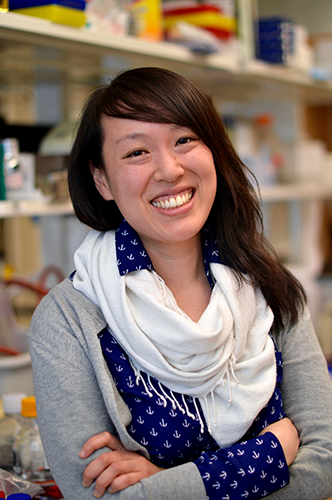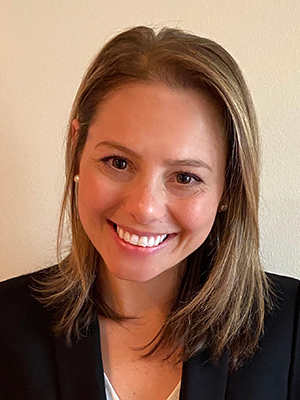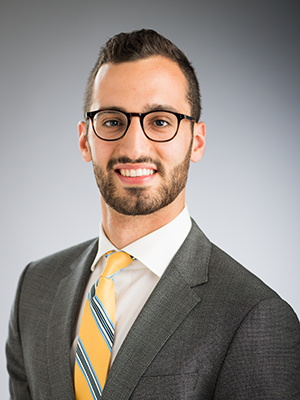Rogel Cancer Center awards junior clinical researchers, fellow and medical students
Media contact: Nicole Fawcett, 734-764-2220 | Patients may contact Cancer AnswerLine™ 800-865-1125
Landmark 2018 gift funds progress for developing cancer researchers at multiple levels
ANN ARBOR, Michigan — As part of a commitment to develop promising scientists who will help improve treatment for cancer patients, the University of Michigan Rogel Cancer Center awards three outstanding young clinical researchers, two exceptional medical students and a powerhouse fellow.
The funding stems from a 2018 commitment of $150 million from Richard and Susan Rogel that leverages the University of Michigan’s broad and deep strengths in science, innovation and patient care.“This significant investment in the Rogel Cancer Center is driving progress, new thinking and excitement across every aspect of our mission,” says Eric R. Fearon, M.D., Ph.D., director of the Rogel Cancer Center.
“As our health system and research enterprises struggle to recover from the coronavirus pandemic, it is especially gratifying to be able to support efforts that increase our knowledge of cancer and lead to better outcomes for our patients as well as help in training the next generation of innovators in cancer research and care.”
The awards comprise three programs from the Rogels’ gift:
Rogel Young Clinical Investigators

The Rogel Young Clinical Investigator awards provide $75,000 in effort support for one year to promising junior faculty working to establish careers as independent clinical investigators who will make a significant difference in the care of patients with cancer.
The inaugural Rogel Young Clinical Investigators are:
- Kristen Pettit, M.D., treats patients with hematologic cancers and focuses on translational research and drug development for patients with myeloid malignancies.
- Zachery Reichert, M.D., Ph.D., sees patients with prostate cancer and other genitourinary cancers and is interested in developing therapeutics and improving understanding of advanced prostate cancer.
- Paul Swiecicki, M.D., sees patients with head and neck cancer and those on early stage clinical trials, with a focus on developing novel therapeutics and biomarkers for predicting response to treatment.
All three joined the Michigan Medicine Division of Hematology/Oncology in 2017 as assistant professors.
Rogel Fellow

The Rogel Fellow program provides support for innovative and influential fellows, mentoring them and giving them the scientific freedom necessary to build creative independent research programs and become the next generation of leaders in cancer research and treatment.
Peggy Ping Hsu, M.D., Ph.D., will join the University of Michigan July 1 as the inaugural Rogel Fellow. Her goal is to understand how metabolism affects cancer cell plasticity and to pursue translational studies that will ultimately benefit patients.
Hsu completed a joint M.D./Ph.D. program at Harvard Medical School and the Massachusetts Institute of Technology. She pursued residency in internal medicine at Brigham and Women’s Hospital and a fellowship in hematology/oncology at Dana-Farber Cancer Institute and Massachusetts General Hospital Cancer Center.
Rogel Scholarships
These scholarships support fourth-year medical students interested in establishing a career in cancer research. Recipients were selected jointly by the Rogel Cancer Center and the U-M Medical School’s Office of Admissions. Each student will receive $50,000 in support of their fourth year of medical school.
This second round of Rogel Scholarships will go to:

Alison Baskin:
Baskin earned her bachelor’s in Human Biology from Stanford University and then spent two years conducting research at the National Institutes of Health in Bethesda, MD. She is currently working with Lesly Dossett, M.D., M.P.H., to improve patient outcomes in oncology through the reduction of low-value cancer surgeries. She will be applying into general surgery this year and plans to pursue a career as a physician-scientist in surgical oncology.
 Michael Sessine:
Michael Sessine:
Sessine earned a bachelor’s from the University of Michigan and is working toward and a dual medical degree and master of business administration. He is working with Todd Morgan, M.D., to understand the clinical implications of genetic predisposition to prostate cancer. He is also working with a team led by Arul Chinnaiyan, M.D., Ph.D., on a urine test to improve prostate cancer detection. He plans to pursue urology as a specialty.
In addition, the Rogel gift is funding 15 Rogel Scholars, giving these exceptional faculty intellectual freedom to take risks and develop new and innovative approaches. Other funds from the Rogels’ gift have benefited new technology and support for genetic counseling in our multidisciplinary cancer clinics.
Learn more about the Rogel gift and the programs it supports.

